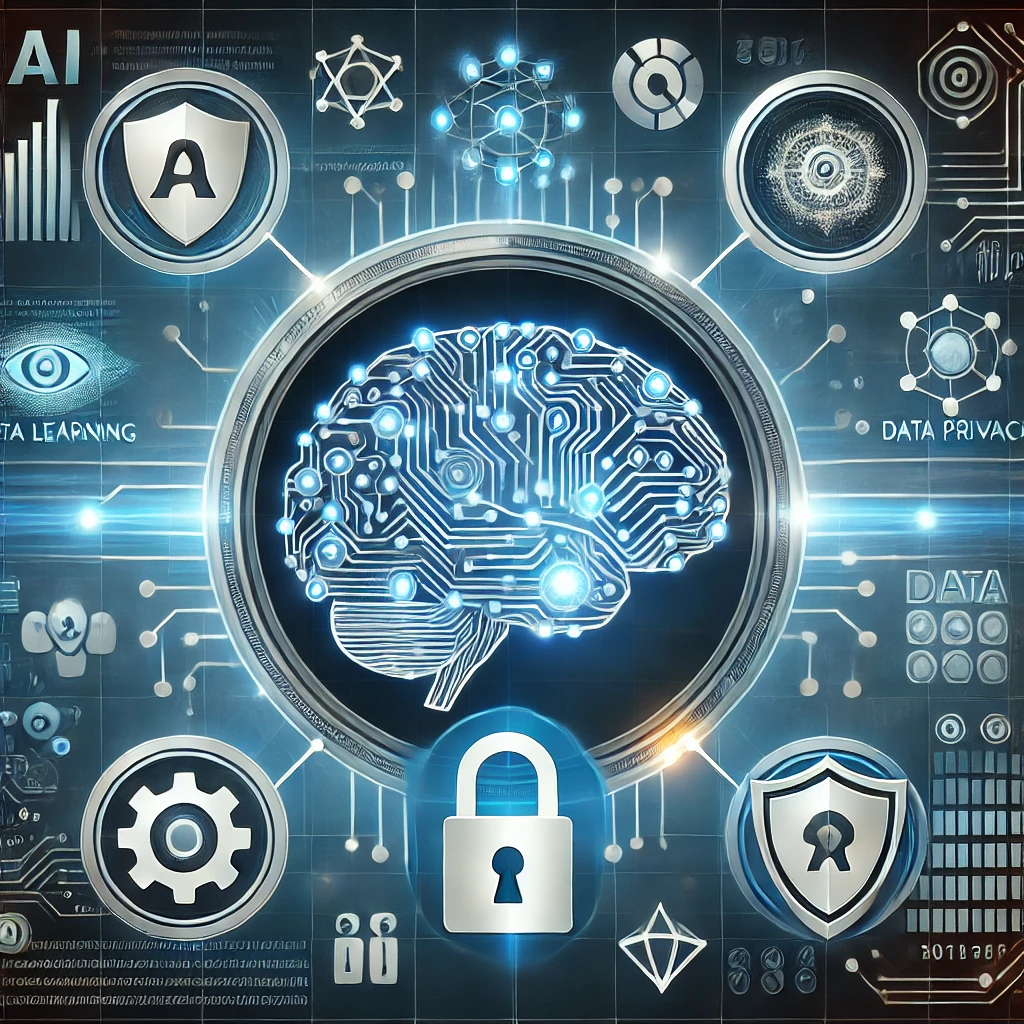December 18, 2024
Enhancing Data Privacy with AI and Machine Learning: A Deep Dive

Data privacy is a growing concern in today's digital world, where data breaches and unauthorized access to personal information are becoming increasingly common. Among the various technological advancements, Artificial Intelligence (AI) and Machine Learning (ML) stand out as powerful tools for enhancing data privacy. This blog delves into how AI and ML are revolutionizing data privacy and what the future holds for these technologies.
1. Understanding AI and ML in Data Privacy
AI and ML are branches of computer science that involve creating intelligent systems capable of learning and making decisions. In data privacy, these technologies analyze vast amounts of data to identify patterns and detect anomalies that might indicate a security breach or potential vulnerability.
How AI and ML Work:
- Data Collection and Analysis: AI systems gather and process large datasets to understand normal behavior.
- Pattern Recognition: Machine learning algorithms identify patterns and trends within the data.
- Anomaly Detection: AI detects deviations from the norm, which could indicate potential threats.
2. Benefits of AI and ML in Data Privacy
The integration of AI and ML into data privacy strategies offers several advantages, making them indispensable tools for organizations looking to protect sensitive information.
Key Benefits:
- Automated Threat Detection: AI and ML systems can continuously monitor and analyze data in real-time, identifying threats as they occur and reducing response times.
- Predictive Capabilities: By analyzing historical data, AI can predict potential vulnerabilities and security risks, allowing organizations to take proactive measures.
- Improved Accuracy: Machine learning algorithms constantly evolve and improve, resulting in more accurate threat detection and fewer false positives.
- Scalability: AI-driven solutions can handle large volumes of data, making them suitable for organizations of all sizes.
3. Applications of AI and ML in Data Privacy
AI and ML are being applied across various sectors to enhance data privacy. Here are some notable applications:
Financial Services:
- Fraud Detection: AI systems analyze transaction data to identify fraudulent activities in real-time.
- Risk Management: Machine learning models assess and predict risks, helping financial institutions mitigate potential threats.
Healthcare:
- Patient Data Protection: AI monitors access to patient records and ensures compliance with data privacy regulations.
- Anomaly Detection: Machine learning algorithms detect unusual access patterns, preventing unauthorized data access.
E-commerce:
- Customer Data Security: AI safeguards customer information by identifying and responding to data breaches.
- Behavioral Analysis: Machine learning models analyze user behavior to detect and prevent fraudulent activities.
4. Challenges and Considerations
While AI and ML offer significant benefits for data privacy, there are challenges and considerations that organizations must address.
Key Challenges:
- Data Quality: The effectiveness of AI and ML systems depends on the quality and quantity of data they analyze.
- Bias and Fairness: Ensuring that AI algorithms are free from bias and provide fair results is crucial.
- Privacy Concerns: Organizations must balance the use of AI with respect for individual privacy rights and regulatory compliance.
5. Future of AI and ML in Data Privacy
The future of AI and ML in data privacy looks promising, with ongoing advancements expected to further enhance their capabilities. Innovations such as explainable AI (XAI) and federated learning are set to address current limitations and open new possibilities.
Future Trends:
- Explainable AI (XAI): Enhances transparency by making AI decision-making processes more understandable to humans.
- Federated Learning: Enables collaborative learning across organizations while keeping data decentralized and private.
- Enhanced Security Protocols: AI-driven solutions will continue to evolve, incorporating advanced security measures to protect against emerging threats.
AI and ML are transforming the landscape of data privacy, offering automated, accurate, and scalable solutions for threat detection and prevention. As these technologies continue to evolve, they will play an increasingly critical role in safeguarding sensitive information. Organizations must stay abreast of these advancements and leverage AI and ML to enhance their data privacy strategies effectively.
Free Trial
